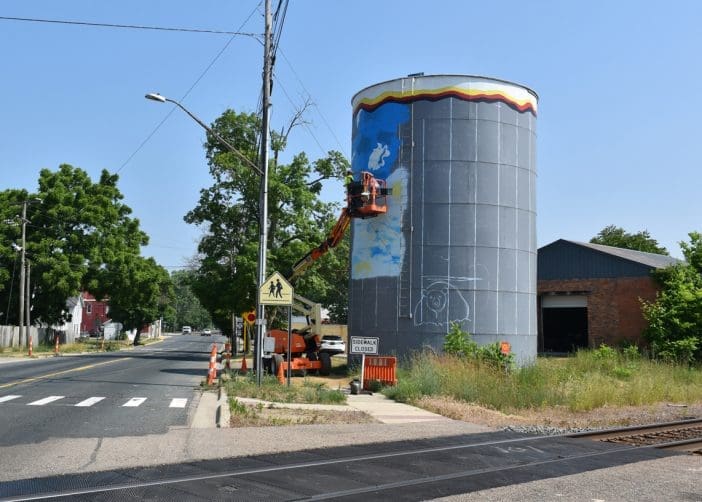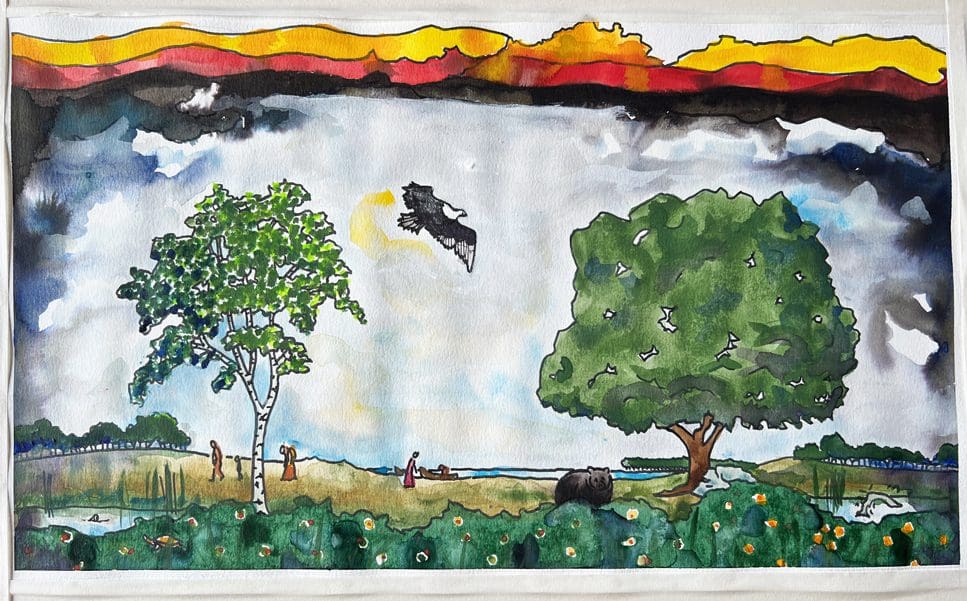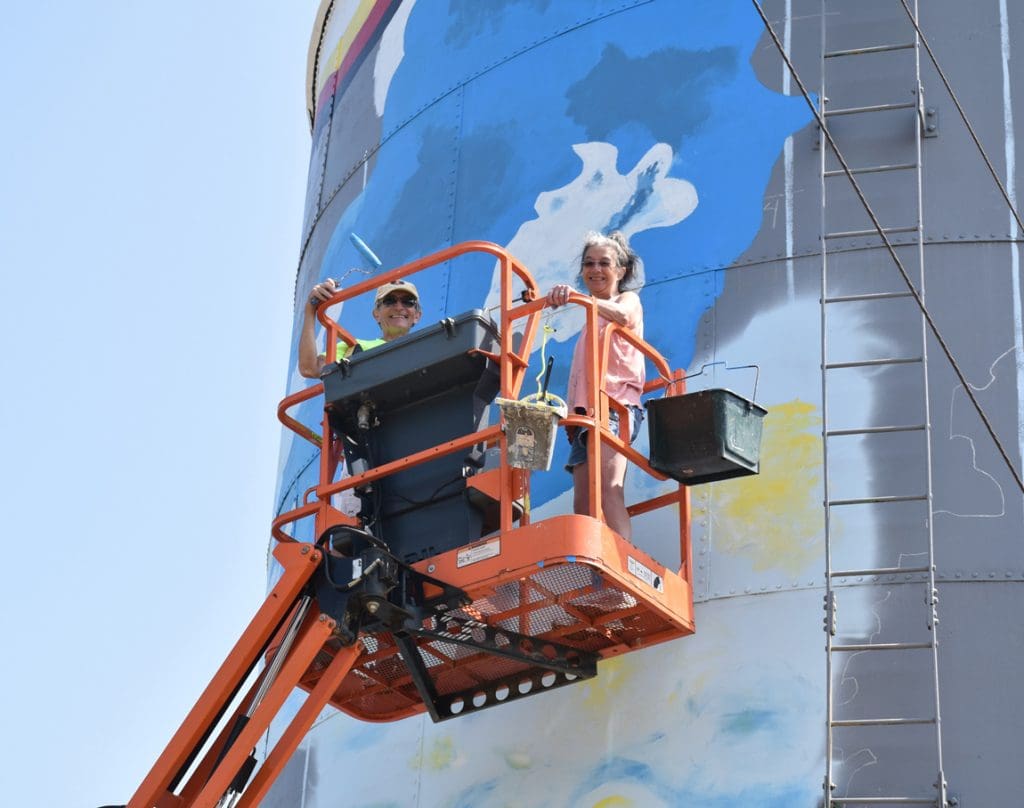
The Bear Clan will soon welcome visitors arriving from the south thanks to the collaboration between muralist Ruth Andrews, the Jones family, and the Pokagon Band of Potawatomi. The previous mural, originally painted for the G. W. Jones Exchange Bank’s centennial celebration in 1977, is being replaced with a more accurate depiction of early tribal life in the area.
History vs story.
History – a description of past events based on fact.
Story – a description of past events based on fact and/or fiction.
For the past 46 years, the old grain tower on South Centre Street next to the railroad tracks has told a story – a description of past events based on fact and fiction. The original design created by Deb Holloway, then Deb Minnard, was commissioned by Donna V. Schurtz, president of the G. W. Jones Exchange Bank, for the bank’s centennial celebration in 1977.
The mural depicted the story of Nellie Ann Patten Fonda and her wandering cow. Sometime in the 1840s, Nellie’s cow and calf went missing, so she went searching for them. As day turned to night, Nellie climbed up on Poke’s Rock and fell asleep. Upon waking in the morning, both cow and calf were there.
True.
Poke’s Rock, which came from a field owned by Carl Buckhold in the late 1890s, was blasted apart and hauled into Marcellus via 14 wagon loads to be used in the construction of C. S. Jones’ new stone house on Main Street.
True.
Also depicted in the mural was a “Chief Pokaman,” who Schurtz remembered seeing as a child walking through a field, and Poke’s Rock, which supposedly served as a tribal council rock for the Potawatomi.
Not true.
According to Kyle Mallett, Advanced Language Specialist at Pokagon Band of Potawatomi, there was no chief living in the area during the time Nellie went in search of her cow. Mallett also says the buckskin the image was wearing would have been cloth by the 1840s and the spear he was holding would have been a rifle by then.
Thanks to artist Ruth Andrews, the Jones family, and the Pokagon Band, the tower will correct the inaccuracies in a fresh, factual historical mural.
“Research led this project in a different direction,” Andrews says. “We thought what a great opportunity to help educate people about what it was really like for the tribal people.”
Andrews’ work is prominent in both Cassopolis and Dowagiac. Her first mural in Cassopolis, painted in 2010, depicts the Kentucky Raid and her second, the Orphan Train in Dowagiac, was completed in 2017. She also retouched Jerry Schlundt’s car mural in Cassopolis making the grain tower mural her fourth.
The intent in Marcellus was to keep the original images in the new mural. However, after discussions with the Pokagon Band, those ideas were shelved for a more accurate depiction of tribal life. Julie Dye, a member of the tribe, took Andrews’ ideas to the Council, who asked that the Pokagons not be represented at all.
During a subsequent meeting with the Joneses, Dye and Mallett, according to Andrews, “eloquently explained how hurtful it is to be misrepresented by someone outside of the tribe without permission.”
The discussion led to a new mural, designed by tribal artist Justin Johnson, whose images are currently coming to life on the old tower. Johnson’s design depicts images symbolizing the Turtle Clan, Eagle Clan, Bear Clan, Sturgeon Clan, and Thunder Clan. The ribbon surrounding the top of the tower are tribal colors – white, yellow, red and black.

“The figures in the design are dwarfed by the landscape,” Andrews says, “which to me says something about balance and harmony.”
Andrews says it will be a “good month” before the mural is completed. She’s been assisted by Mishawaka artist Julie Morris and painting contractor and President of the Cass County Historical Society Ron McAdam. This is McAdam’s fourth “date” with the tower. He assisted Deb Holloway in 1997 in repainting the mural. Since then he has cleaned it twice, touched it up and lastly did “a lot of painting.” This time, McAdam cleaned and primed the tower prior to Andrews starting on the new mural.

While the project’s budget doesn’t currently allow for descriptive signage, Andrews is hopeful that an accompanying narrative can be placed next to the tower in the not too distant future.
And just think how appropriate it would be if the sign could be affixed to a large, local rock . . .

Leave a Reply
You must be logged in to post a comment.